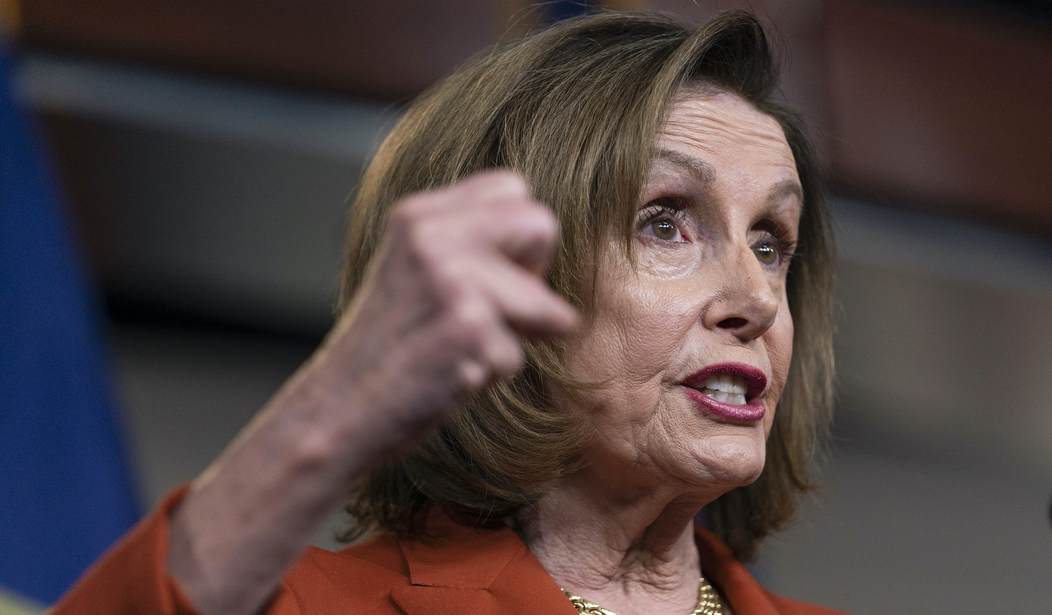There are a number of nervous Democrats in Congress that are searching for some sort of “win” to put up on the scoreboard before the midterm elections come washing over them. With most of their big-ticket (and widely unpopular) agenda items bogged down, some are looking at a possible ban on stock market trading by members of both chambers as one piece of low-hanging fruit that they might be able to get into the books. This is an issue that shows up in the news from time to time but never seems to garner much momentum in Congress. The underlying questions are the obvious issues of the propriety of members making bets on the stock market involving companies that they themselves are charged with regulating, potentially impacting the value of those stocks. There are currently bills in both chambers that would impose some type of restrictions along these lines and they have each gained considerably more cosponsors than similar measures in the past. But that doesn’t mean that either one of them will ever find their way to Joe Biden’s desk, at least in part because of Speaker Nancy Pelosi’s seeming lack of enthusiasm for the subject. (Associated Press)
When Rep. Abigail Spanberger first introduced a bill banning stock trading by members of Congress and their families, the Virginia Democrat managed to get only eight co-sponsors. So far this session, 62 — or about one out of every seven House members — have signed on.
It’s a similar story in the Senate. Sen. Jeff Merkley, D-Ore., a once lonely voice on the issue, had just one co-sponsor for his proposed stock trading ban in the last two congressional sessions. Now, he has nine.
The uptick in support reflects a growing lawmaker appetite to tighten the rules around trading after several members faced heavy scrutiny for their stock transactions during the pandemic.
I’ve always been of two minds on this subject. My inner capitalist recoils at the idea of forbidding anyone – including members of Congress – from having the opportunity to enrich themselves legally. If any of our congressmen want to go out and make some extra cash mowing lawns in their spare time, that’s up to them, provided they are showing up for work and getting their legislative jobs accomplished. The same should be true for investing.
At the same time, however, there clearly are issues to consider when we have people who pass regulations on companies or enact other legislation on entire industries that could impact their stock values trading in those companies’ shares. You don’t have to technically be an “insider” at a publicly-traded company to engage in insider trading. If you know, for example, that there will soon be a bill introduced that will significantly benefit the electric car industry and you run out and start buying up Tesla stock before the news breaks, you have used knowledge not available to the public to turn yourself a profit.
The situation becomes even more complicated when you include the spouses and other family members of the senators and congressional representatives. The way the law is currently set up, members of Congress and most other government employees have to report the purchase or sale of stocks, bonds, and commodities within either 30 or 45 days, depending on the total value involved. But that doesn’t seem to be working very well because the rules don’t stop them from trading in stocks that may be influenced by congressional action. Also, as the linked report points out, there are quite a few members who are regularly either late making those disclosures or never report them at all.
It’s curious that one of the people who has been less than supportive of these types of regulations is House Speaker Nancy Pelosi. She has drawn a lot of attention over the very lucrative stock portfolios held by both herself and her husband. The Pelosis have reportedly banked upwards of $30 million from their investment plans. It eventually became so obvious that one investment manager launched a product called the “Insider Portfolio” that mimics all of the stock transactions made by Pelosi and her husband. (If you are truly curious about Nancy Pelosi’s trades, you can monitor them here.)
It seems to me that we should be able to get this issue under control without a total ban. If members’ trades are monitored more rigorously, with significant penalties for non-compliance, that would be a start. Also, Any trades made in advance of announcements that would clearly impact a stock’s price should be able to be flagged by an independent auditor, with penalties being charged to those who seem to be gaming the system. The bottom line is, if they think nobody is watching, some of them will try to benefit in this fashion. But if they know that any further insider trading could drain their bank accounts or endanger their phony-baloney jobs, they’ll probably behave a bit better.







Join the conversation as a VIP Member